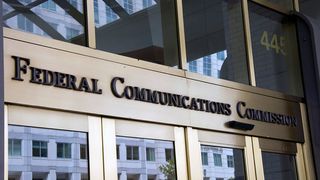Critics Eviscerate FCC Lifeline Proposal

The National Grange, which advocates for rural and agricultural interests, has joined with Consumer Action and the former chair of the Oglala Sioux Tribe Utility commission to oppose FCC Chairman Ajit Pai's proposal to revamp the FCC's Lifeline low income advanced communications subsidy program.
They used words highly charged words like "knock out," "cripple," "kill" and "destroy" to characterize the proposal.
Pai has scheduled a vote on the proposal for the Nov. 16 meeting, so it was pretty much of a last-ditch effort since Pai almost certainly has the Republican votes to pass it.
Under Pai's proposal, which includes an order, a proposed order and an inquiry, the FCC would--in the order part--"clarify" that premium Wi-Fi did not qualify as mobile broadband under the subsidy, increase the portability of Lifeline service among carriers and target support
for rural areas on tribal lands only to those lands.
There is also an accompanying notice of proposed rulemaking (a proposed order) that seeks comment on, among other things, capping the program--the most contentious issue in the previous Lifeline revamp--ending preemption of states' role in eligible telecommunications carrier designations, proposes to target lifeline to facilities-based broadband
capable nets offering voice and broadband--the FCC has been migrating its telecom subsidies from voice to broadband over the past several years.
The Grange et al. warned that the revamp could end almost all lifeline wireless service to tribal lands and could "wipe out" service for millions. They argue
Broadcasting & Cable Newsletter
The smarter way to stay on top of broadcasting and cable industry. Sign up below
“The National Grange, the nation's oldest rural advocacy organization, is concerned that Federal Communications Commission Chairman Ajit Pai's recent Lifeline proposals would cripple the low-income telecom program by cutting off funding to companies that serve the majority of subscribers," said Burton Eller, legislative director for the organization.
Contributing editor John Eggerton has been an editor and/or writer on media regulation, legislation and policy for over four decades, including covering the FCC, FTC, Congress, the major media trade associations, and the federal courts. In addition to Multichannel News and Broadcasting + Cable, his work has appeared in Radio World, TV Technology, TV Fax, This Week in Consumer Electronics, Variety and the Encyclopedia Britannica.

